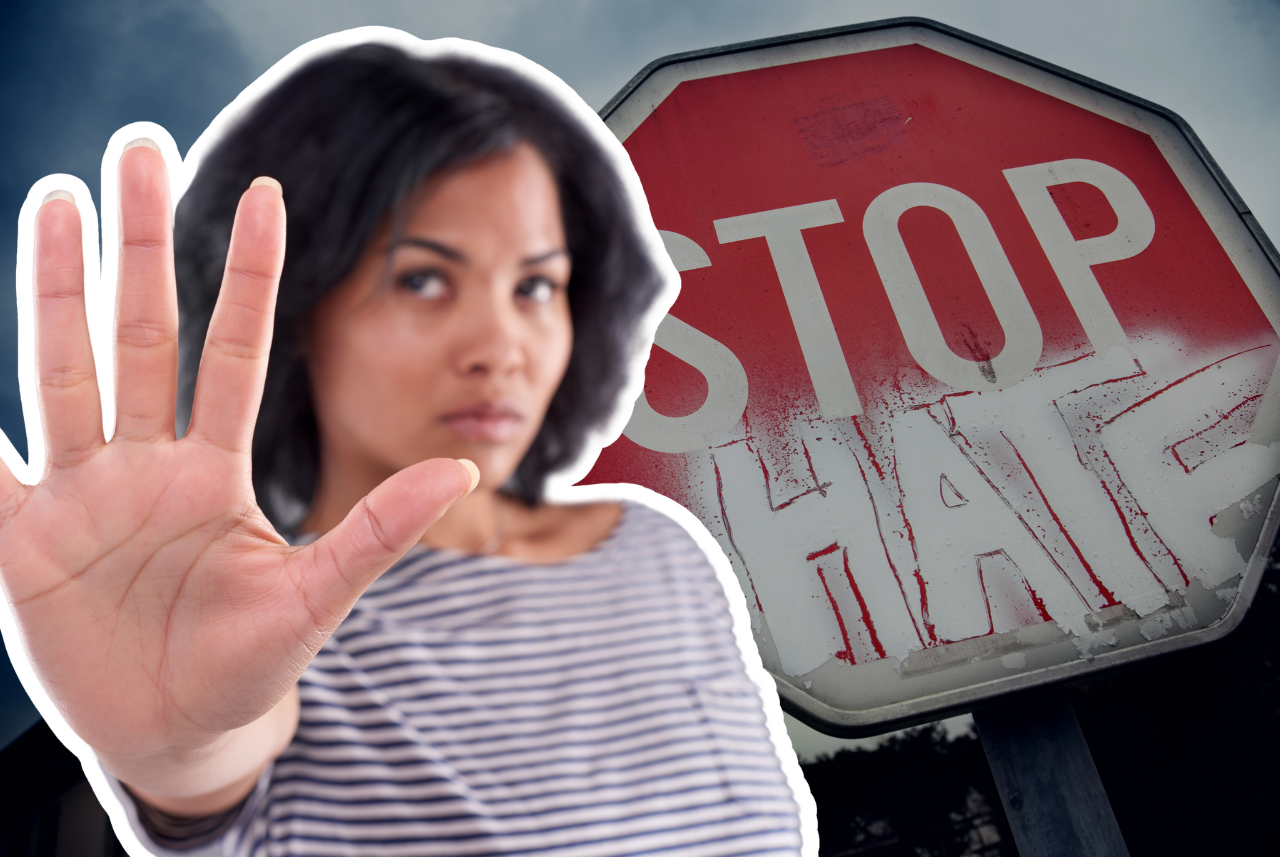
Listen to this note:
Hate crimes and incidents seem to be on the rise in different parts of the country, driven by various reasons: religion, immigration status, sexual preference, gender, race, or even political preferences. But do you know the difference between a hate crime or incident? Or what to do about any of these cases in San Mateo County?
Hate crime or incident?
According to information from the San Mateo County Police Department, it is important to know the difference between a hate crime and a hate-motivated incident.
A hate incident is an action or behavior motivated by hate but legally protected by the First Amendment right to free speech.
However, if a hate incident begins to threaten a person or property, it can become a hate crime.
Some examples of hate-motivated incidents are:
- Verbal abuse
- Abuse
- Displaying hate materials on your own property.
- Posting hate material that does not cause damage to property.
- Distribution of materials with hate messages in public places.
A hate crime is a crime against a person, group, or property motivated by the victim's actual or perceived protected social group.
Some signs that a crime was motivated by hate are that:
- The attacker chose the victim because she is a member of a protected group.
- The attacker chose the property because its owner is a member of a protected group.
- The offender made comments (written or verbal) that demonstrated prejudice toward a protected group.
- The crime occurred on an important or significant date for the victim's or the aggressor's group.
- There is organized hate activity in the area.
hate crimes
In California, people can be victims of a hate crime if they have been targeted because of their actual or perceived actions on the basis of: race or ethnicity, national origin, religion, sex, sexual orientation, physical or mental disability, or association with a person or group with one or more of these "actual" or "perceived" characteristics.
It should be noted that crimes motivated by hate can be prosecuted as misdemeanors or as serious crimes depending on the acts committed.
It should be noted that if you witness a hate crime, you can call the San Mateo County Police Department at (650) 522-7700.
Take action
Local authorities suggest that if you are the victim of a hate crime, you should immediately contact local police, get medical attention (if needed), write down the exact words that were said to you, make notes about any other events, save all evidence (e.g., graffiti, eggshells, writing on the victim's vehicle), and if it is safe to do so, wait for law enforcement to arrive and take photos.
Similarly, try to get names, addresses, phone numbers and emails of other victims and witnesses, try to get a description of the suspect or vehicle from any eyewitnesses, and, if possible, contact community organizations in your area that respond to hate crimes.
County police are urging you, if you are a victim, witness or community member, to speak out against hate and intolerance, organize community rallies to support victims, offer support and assistance to victims, and ask public officials to speak out against hate crimes.
In addition, they explain that a human relations commission or hate crimes network could be established that includes law enforcement, local government, schools, religious organizations and community organizations, who can be asked to respond to hate crimes immediately when they occur and to promote prevention and awareness.
It is important to note that if you are a victim of a hate crime in this state, you are protected under the California Victims' Bill of Rights (Marsi's Law), which grants you certain rights.
Thus, you have the right to receive compensation for your losses; to request money to cover your property losses, medical expenses, lost wages, and other losses; to disclose how the crime impacted your life before the defendant is sentenced; to obtain information about the criminal case from the prosecutor; to obtain court orders that could help you, such as a protective order to keep the defendant away from you, or one to pay attorney fees if you hired one to help you with your case.
The court may also order the defendant to pay up to $25,000 or more for violating your civil rights.
It is important to know that California law prohibits law enforcement from asking people, including those reporting or being victims of possible crimes, about their immigration status unless the information is necessary to certify the victim for a U visa (victim of crime visa) or T visa (victim of human trafficking visa).

 This resource is supported in whole or in part by funding provided by the State of California, administered by the California State Library in partnership with the California Department of Social Services and the California Commission on Asian and Pacific Islander American Affairs as part of the Stop the Hate program To report a hate incident or hate crime and get support, go to AC vs Hate.
This resource is supported in whole or in part by funding provided by the State of California, administered by the California State Library in partnership with the California Department of Social Services and the California Commission on Asian and Pacific Islander American Affairs as part of the Stop the Hate program To report a hate incident or hate crime and get support, go to AC vs Hate.

You may be interested in: Greater citizen participation: the key to ensuring that the needs of Redwood City residents are heard

